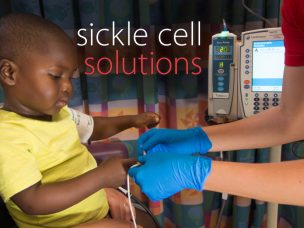Hematology
FDA Approves First Targeted Therapy to Treat Patients With Painful Complication of Sickle Cell Disease
On November 15 the U.S. Food and Drug Administration approved Adakveo (crizanlizumab-tmca), a treatment to reduce the frequency of vaso-occlusive crisis – a common and painful complication of sickle cell disease that occurs when blood circulation is obstructed by sickled red blood cells – for patients age 16 years and older. “Hope has never been...
Sickle Cell & PTSD Predictor in Healthcare disparity
Posttraumatic Stress Disorder (PTSD) is a psychiatric disorder that occurs in people who have experienced a personal assault or who have witnessed a traumatic event. The exposure to an upsetting traumatic event can be indirect rather than first-hand such as of learning of a violent death of a close family member. In Sickle Cell Anemia...
Gene Therapy, Next Up For Sickle Cell Disease?
Sickle Cell Disease has been at the forefront of inherited disorders that have been studied to determine the exact gene mutation. When Geneticists discovered the mutation on the Hemoglobin-Beta gene on Chromosome 11 causes Sickle Cell Disease, this information was mostly used to counsel persons who carry the trait regarding the need for genetic testing...
Global Policy: What You Need To Know About Sickle Cell Disease
Sickle Cell Disease (SCD) affects persons whose ancestors come from sub-Saharan Africa; Spanish-speaking regions in the Western Hemisphere (South America, Central American and the Caribbean); Mediterranean countries such as Turkey, Greece, and Italy; India and Saudi Arabia. In the United States, 1 in 13 African American babies is born with Sickle Cell Trait (SCT) wherein...
Opioid Crisis Slows Care For Sickle Cell Disease Patients
For over two decades, the daily account of the Opioid Crisis has focused on an increase in accidental overdoses. Patients with documented chronic medical conditions were found to not be a part of the populous who obtained lethal agents. The powerful painkillers that have been obtained both legally and illegally have changed the landscape for...
Can Biosimilars help in implementing a value-based care approach in hematology-oncology?
Blood cancer is an extremely costly cancer to both patients and payers. According to The Leukemia and Lymphoma Society, the average annual spending for treating blood cancer is $156,000 in the first year after diagnosis1. Blood cancers include leukemia, lymphoma, myeloma, and bone marrow disorders. These cancers are also known to have higher out-of-pocket costs...
More Medical News











